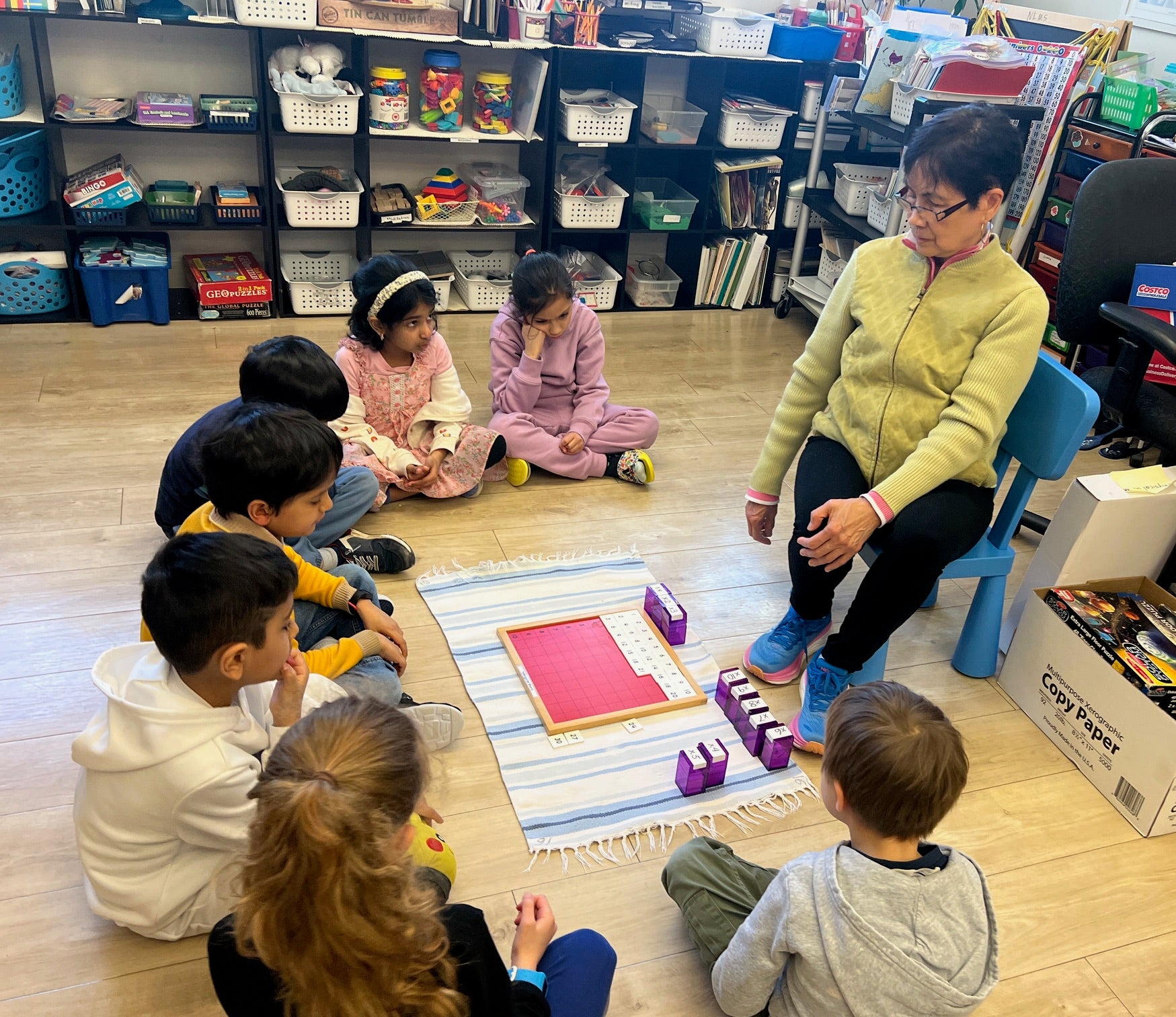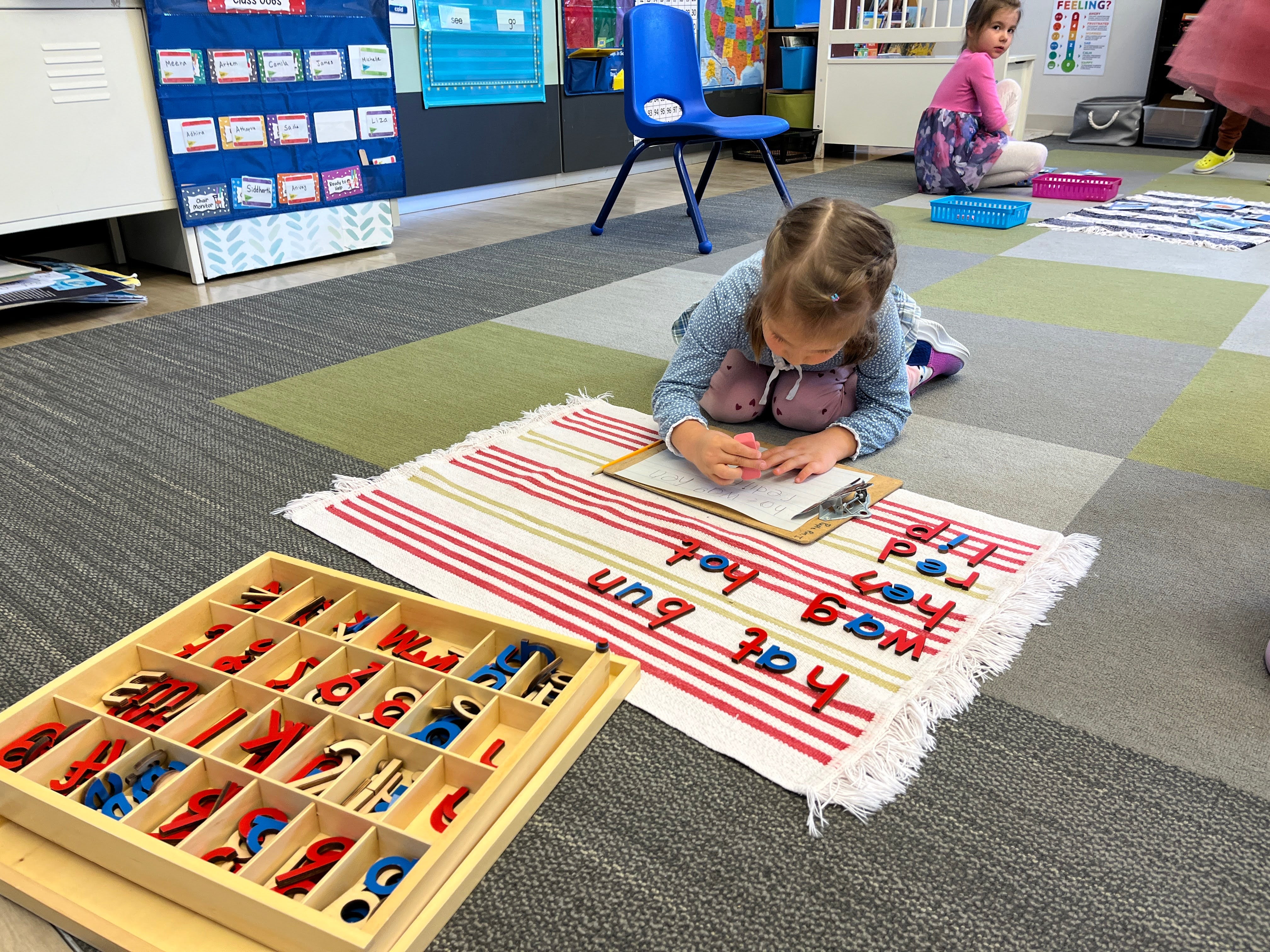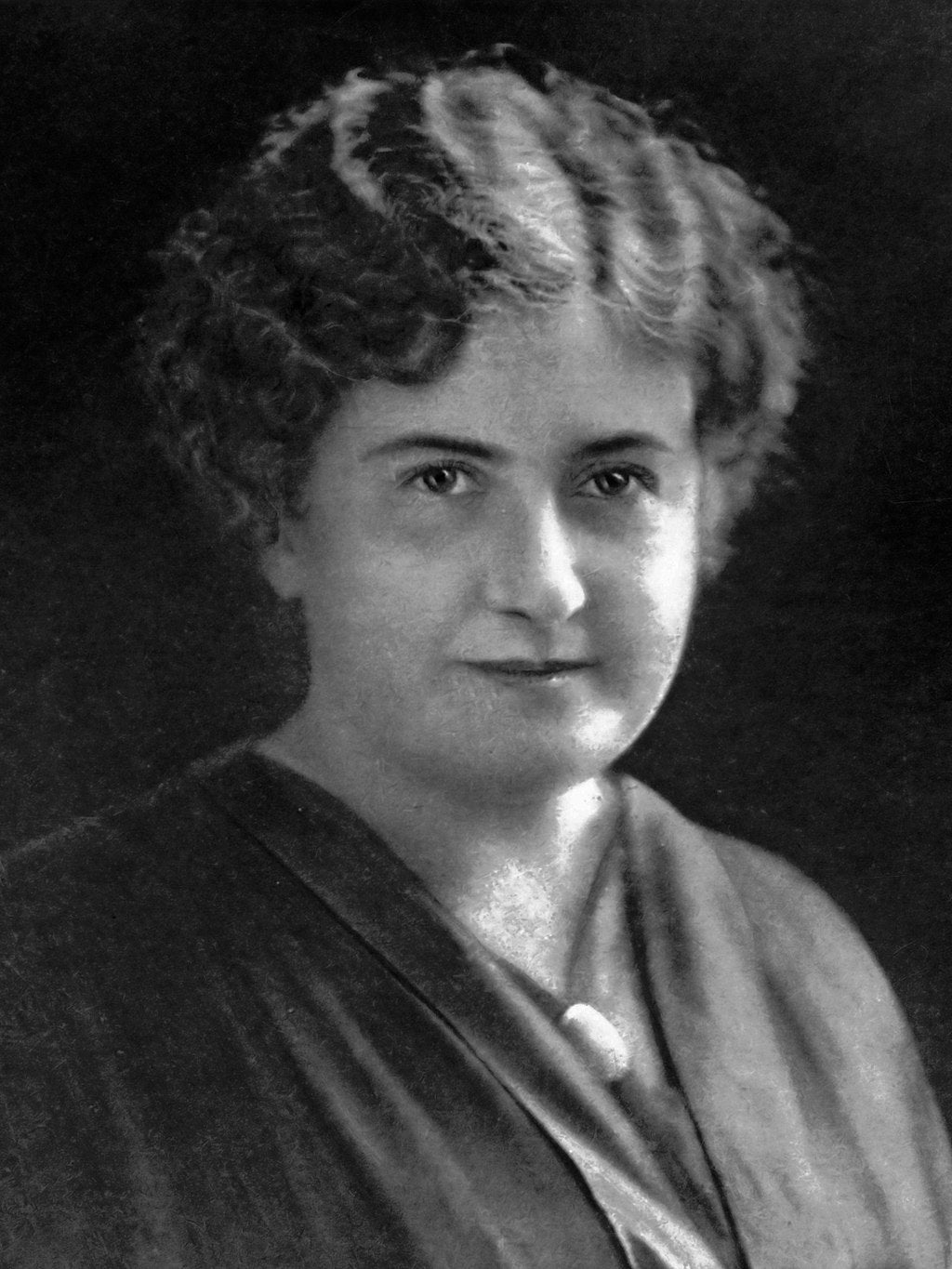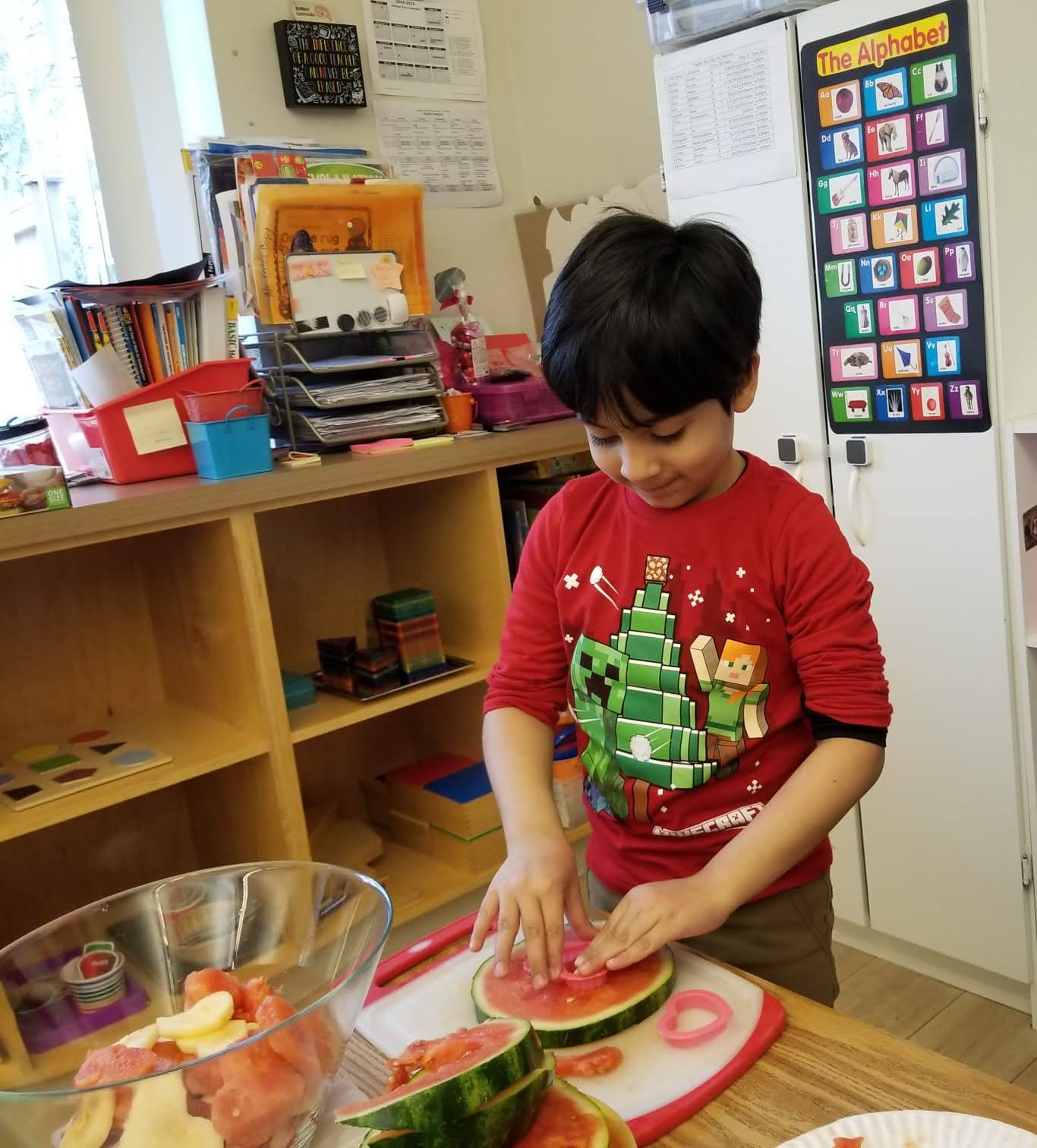
Fostering Development
Our program helps children develop their skills in the following categories:
- Language
- Engineering
- Order
- Music
- Grace and Courtesy
- Refinement of the Senses
- Reading
- Spatial Relationship
- Mathematics
- Science
- Foreign Language
- Arts and Crafts
- Puppetry
- Dramatic Play

Our Program
Our program adopts a continual progression framework where children are grouped according to their unique phase of development. Our curricular offerings and activities begin with the child’s need for independence, coordination, concentration and order. We create playful academic lessons that strengthen children’s visual perception, motor coordination, cognitive skills, social awareness, creativity and academic abilities. Our academic method seeks to blend Traditional, Progressive and Montessori approaches to teaching in order to ensure that all of our students’ potential and developmental needs are nurtured.

The Montessori Method
Maria Montessori was the first female physician in Italy, graduating from the University of Rome in 1896. Her medical work led to clinical observations on how children learn and develop through their environment.
In 1901, she returned to the University to study psychology and anthropology, and in 1907, she opened the first Casa dei Bambini, or “Children’s House,” in a poor district of Rome where the Montessori Method of Education was born.

Why Montessori?
The Montessori method of education honors the individuality of each child, recognizing their unique needs and talents. Developed through careful observation of children's stages of development, it aims to help them flourish by nurturing their natural love and joy for learning.
Young children are introduced to practical life skills, including domestic tasks and graceful manners. These activities are designed to improve attention span, hand-eye coordination, and patience. The Montessori approach fosters independence, responsibility, and freedom within limits, leading to a sense of satisfaction, contentment, and joy as children become active participants in their daily environment.
As Montessori education progresses into the later years, it supports the child's growing interest in peer relationships while continuing to emphasize that each student is ultimately responsible for their own intellectual journey.
